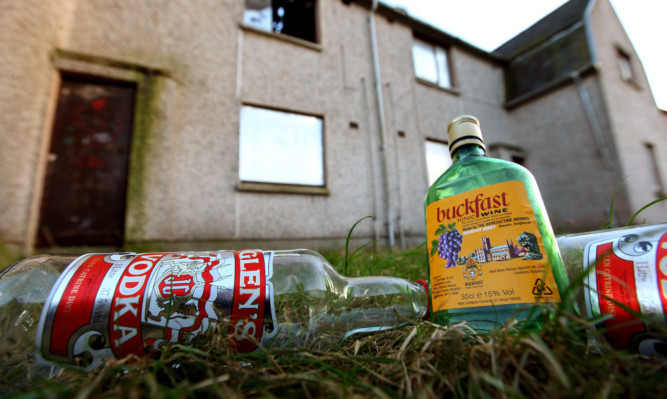Tougher regulation of caffeinated alcoholic drinks such as Buckfast is necessary to tackle the problem of “wired-awake drunks”, MSPs have been told.
Labour’s Dr Richard Simpson defended his plans for tightening the law surrounding the sale and promotion of alcohol when he appeared before Holyrood’s Health Committee.
The former GP’s Alcohol Bill includes measures that would introduce a minimum price on multipacks, regulate alcoholic drinks containing caffeine, restrict alcohol advertising and bring in drinking banning orders.
The Scottish Government has said many of the provisions are unworkable, fall foul of UK and EU legislation or are better dealt with under existing legislation.
Ministers have recommended that the Bill should make no further progress in the Scottish Parliament.
The proposed limit on the volume of caffeine in alcoholic drinks is partly aimed at addressing a link between Buckfast and offending identified in a study for the Scottish Prison Service on young male offenders in Scotland.
It found 43.4% of those who admitted drinking before their last offence had consumed Buckfast tonic wine.
Dr Simpson said it is one example of evidence showing a “serious problem” with the drink in the west of Scotland, but he conceded further research may be needed.
He said: “Caffeine in the strength that is contained in these drinks is a stimulant, whereas alcohol itself is a depressant.
“If you add in caffeine in significant strength, drunk in significant quantities, then you produce wired-awake drunks who are actually likely to be more aggressive for longer and less in control of themselves.
“It is the combination of caffeine and alcohol that gives me the concern in terms of the criminality, based on the report in the young offenders unit, which showed the high numbers who drunk this particular substance and had got themselves into serious difficulties, enough to go to prison.”
Ministers say the proposal could fall foul of EU regulations protecting the free movement of goods.
The Scottish Government is currently fighting an EU challenge against its own minimum unit pricing legislation after a European Court judge argued it could breach the same regulations.
Dr Simpson told the committee he had been “shocked” to see all 10 of his proposals rejected by the Government.
Public Health Minister Maureen Watt, who also appeared before the committee, was criticised by some members for dismissing the Bill in its entirety.
Labour MSP Malcolm Chisholm said: “It just seems to me on principle very hard to understand why you would be opposed to everything in the Bill.
“I don’t want to be unkind, but it almost seems… as if you’ve decided that you’re opposed to the Bill and you’re looking for lots of different reasons to justify that.”
MSPs were told the Scottish Government is in the process of updating its alcohol framework, which sets out an action plan for tackling alcohol-related harm.
Ms Watt said: “We’ve looked at each and every aspect of the Bill… we’re quite happy to look at anything from any quarter in terms of taking forward our alcohol framework.
“But in terms of the overall Bill, we don’t feel that it’s necessary at this time.”
Carole Barker-Munro, head of the alcohol team at the Scottish Government, said: “We’re at the early stages so for us this legislation possibly pre-empts some of the things that might come out of the alcohol framework and what we want to do is take a broader look across the piece about what might work.”
